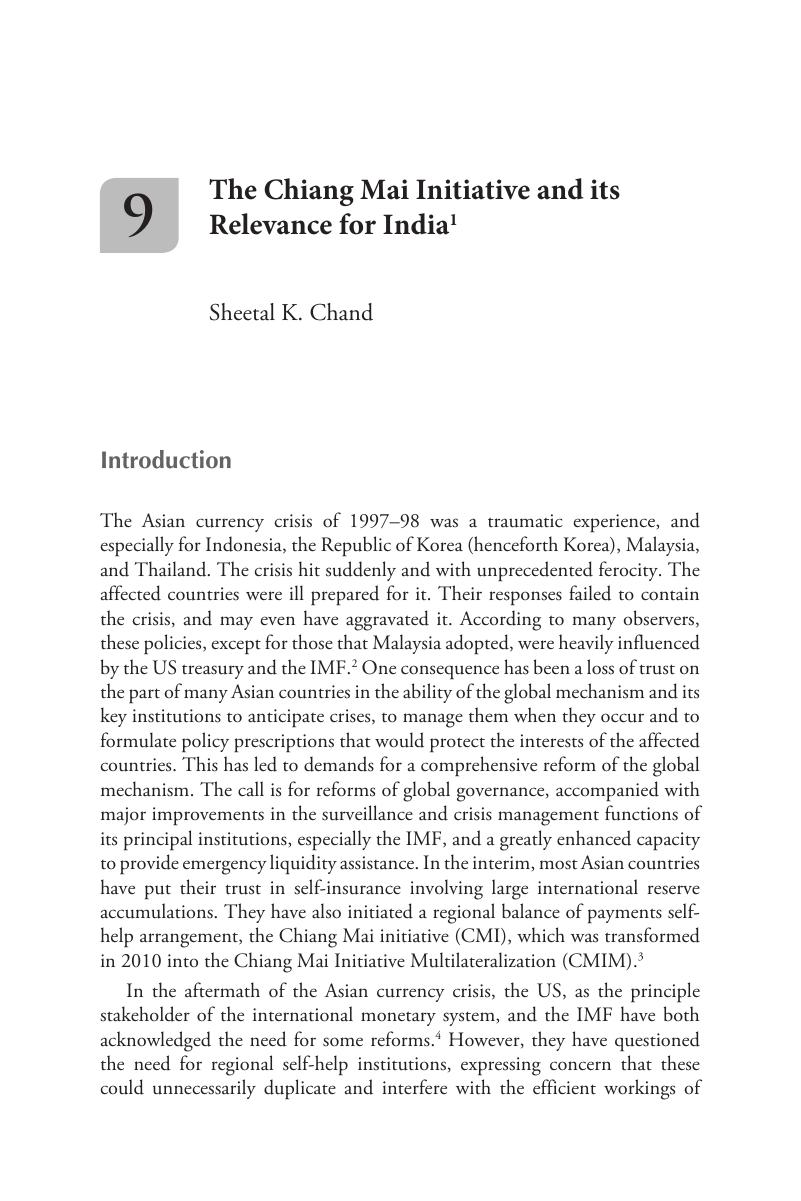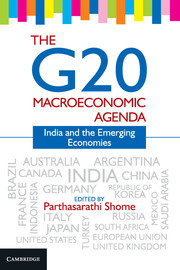Book contents
- The G20 Macroeconomic Agenda
- Copyright page
- Contents
- List of Tables and Figures
- Preface
- Section 1 Introduction
- Section 2 Financial Sector Reforms and Regulation
- Section 3 Global Macroeconomic Coordination and Reforming International Financial Institutions
- 4 The G20MAP, Sustaining Global Economic Growth and Global Imbalances: India’s Role in Supporting Cooperation among Global Macroeconomic Policymakers
- 5 Reform of International Financial Institutions
- 6 Capital Controls: Instruments and Effectiveness
- 7 The International Monetary System: Mitigating Risks from Dominance of the Dollar and India’s Stance
- 8 Challenges in IMS Reforms: Emerging Markets’ Perspective1
- 9 The Chiang Mai Initiative and its Relevance for India1
- Contributors
- Index
- References
9 - The Chiang Mai Initiative and its Relevance for India1
from Section 3 - Global Macroeconomic Coordination and Reforming International Financial Institutions
Published online by Cambridge University Press: 05 July 2014
- The G20 Macroeconomic Agenda
- Copyright page
- Contents
- List of Tables and Figures
- Preface
- Section 1 Introduction
- Section 2 Financial Sector Reforms and Regulation
- Section 3 Global Macroeconomic Coordination and Reforming International Financial Institutions
- 4 The G20MAP, Sustaining Global Economic Growth and Global Imbalances: India’s Role in Supporting Cooperation among Global Macroeconomic Policymakers
- 5 Reform of International Financial Institutions
- 6 Capital Controls: Instruments and Effectiveness
- 7 The International Monetary System: Mitigating Risks from Dominance of the Dollar and India’s Stance
- 8 Challenges in IMS Reforms: Emerging Markets’ Perspective1
- 9 The Chiang Mai Initiative and its Relevance for India1
- Contributors
- Index
- References
Summary

- Type
- Chapter
- Information
- The G20 Macroeconomic AgendaIndia and the Emerging Economies, pp. 253 - 294Publisher: Cambridge University PressPrint publication year: 2014



